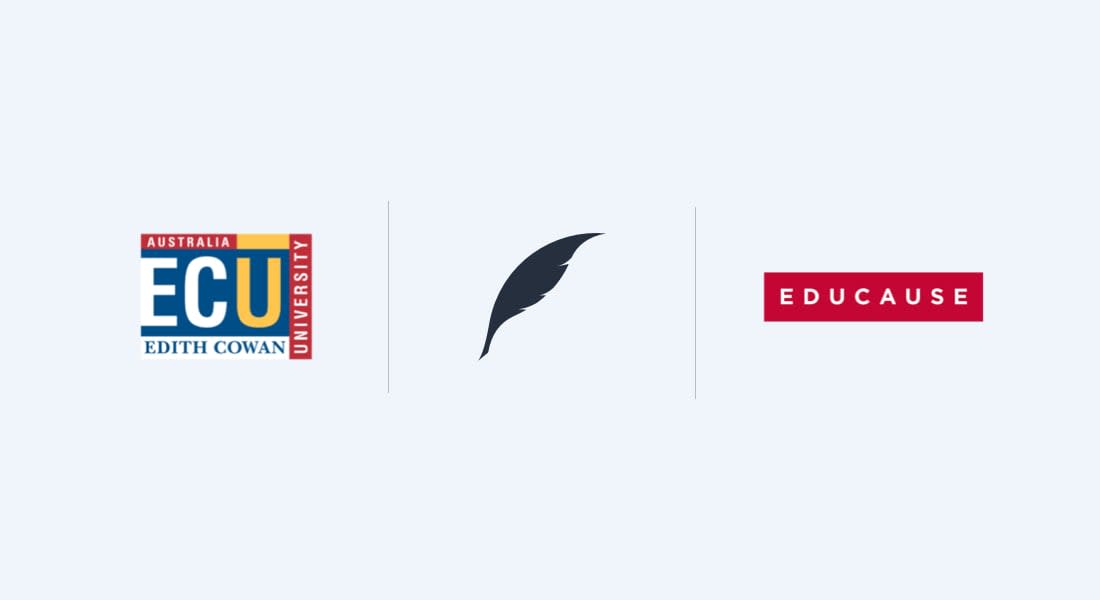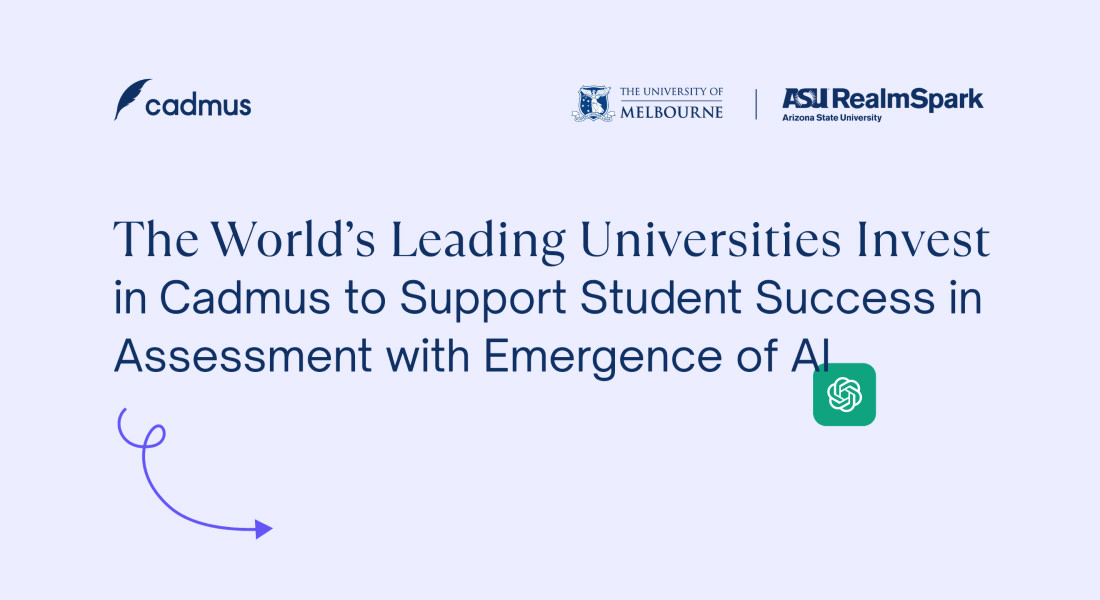Improving student success and assessment literacy at ECU

Last year, Professor Angela Hill, Deputy Vice-Chancellor (Education) at Edith Cowan University, joined Cadmus CEO Herk Kailis to present at the annual EDUCAUSE conference. Presented virtually, the session ‘Assessment Literacy — Fostering Student Success through Intentional Policy & Technology Design’ explores ECU’s strategic approach to improving student success and assessment literacy by partnering with Cadmus to leverage educational technologies.
What is assessment literacy?
Assessment literacy refers to the skills and knowledge required to enhance student learning in assessment. For students, this involves the ability to self assess their current learning levels, understand where they’re going, and identify what needs to be done to reach a learning goal (McCafferty & Beaudry, 2018). For teachers, it is the knowledge and skills required to design assessment that improves student learning, and evaluate outcomes to continuously improve (Khal, Hofman, Bryant, 2013).
ECU prides itself on its diverse cohort of students, bringing unique challenges to designing effective assessment. According to Prof Hill, when thinking about designing assessment for diverse students, it is essential to consider the varying levels of digital literacy, prior academic knowledge and preparedness, and access to technology.
ECU’s approach to assessment
Following a comprehensive review of assessment policies in 2017, ECU developed a set of principles to apply to assessment design that focuses on building assessment literacy and promoting meaningful learning.
These assessment design principles include:
Learning centred
Globally relevant
Supports transformative learning
These principles help teachers achieve the intended learning outcomes through a whole-of-course, scaffolded approach to assessment. Scaffolding breaks down larger tasks into small, meaningful activities that build upon each other. This staged approach helps students improve their overall performance.
To complement this process and support students further, ECU has also introduced a learning support framework. This framework follows a multi-layered approach that helps students build confidence and skills when completing assessment tasks. Support services include online resources and workshops, 1-on-1 support, peer support programs, and more. The most scalable approach that Prof Hill identified is embedded within the curriculum.

Using an assessment for learning platform like Cadmus has enabled ECU to embed scaffolded learning support into over 1200 individual written assessments in 2020 alone. Through their partnership with Cadmus, ECU has been able to roll out learning-centred assessment at scale.
“[Cadmus] positions faculty and students to improve their assessment literacy while simultaneously promoting academic integrity.” — Professor Angela Hill
How does Cadmus support assessment literacy at scale?
As an online assessment for learning platform, Cadmus provides built-in learning support for students. The platform helps students build assessment literacy by providing access to academic skills guides, referencing guides, and checklists to help them complete assessment tasks. These features are designed to help students feel more confident in their work as they receive help when they need it and before final submission.

On the other hand, the platform helps academics build assessment literacy by making it easy to design scaffolded, learning-centred assessment. Teachers have access to sophisticated learning analytics to provide more proactive student support and evaluate the effectiveness of their assessment design, so they are constantly improving and iterating on tasks. Academic integrity analytics and reporting also provide teachers with the confidence that students are completing their own work.
A lasting partnership
By embedding Cadmus into the curriculum, ECU has seen its assessment strategy come to life. Students and academics have seen improvements in grades, retention, and academic misconduct. As ECU evolves their innovative teaching approaches (including transitioning away from exams), Cadmus continues to be a flexible platform to facilitate large-scale assessment change.
Located in Western Australia, Edith Cowan University has a 5-star teaching quality rating and has a strong commitment to teaching excellence and student support. Learn more about the university’s student success strategy or watch the full presentation from EDUCAUSE 2020.

Sharanya Yoganathan
Product Lead
Keep learning…
The latest in teaching and learning. Delivered to your inbox.



